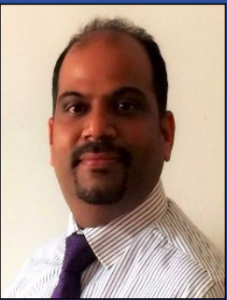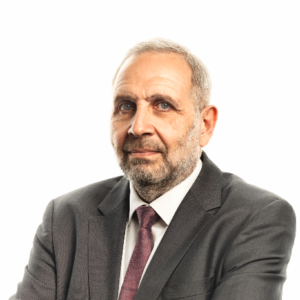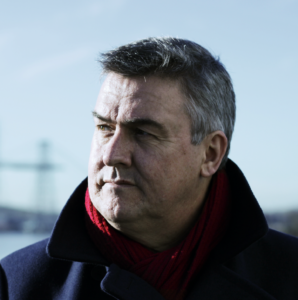While most people may view slips, trips and falls as simple accidents, and a fact of life, they can pose a serious danger to the health of crew aboard ships. This time, our special column, in association with The North of England P&I Club, gives emphasis on slips, trips and falls which are the reason for many personal injury claims.
On the one hand, seafarers should be more self-aware and complacent when working on ships; on the other hand, operators need to pay ensuring the safety of their crew and take necessary precautions. In this context, we ask experts to assess whether industry has taken adequate measures to prevent such incidents.
Given the nature of ships and their work, slips, trips and falls are common place. Is enough being done to control this common source of injuries?

Capt. Sachin Singh |
 Jonathan Spremulli Jonathan SpremulliPrincipal Director – Marine, International Chamber of Shipping |
|
| NO! There is an age old saying, “Prevention is better than cure.” While a humongous amount of awareness of the hazards which can lead to slips, trips and falls has been spread industrywide, the implementation of effective measures to prevent them (a key to reducing their frequency) appears to have fallen short. While the industry kept and still is talking about the “Three Points of Contact” rule, a simple thought to “fix it before the fall” has slipped through the cracks (the potential to save many a life lost in the cause). Slips, trips and falls account for a major percentage of occupational accidents onboard ships and more often than not, we rush to attribute such accidents to ‘human judgement / error’ either due to a lapse in implementation of work standards or procedures, poor housekeeping, human oversight of a warning notice or simply because that person has not applied the adage of ‘one hand for the ship and one for yourself’. But perhaps, had a little more thought been given to ‘designing out’ these hazards at the design stage, then some of them may not have ever occurred. This is where the operational experience of the seafarers and the expert knowledge of a Human Factors specialist, both at the design stage and during build, can be exploited to spot and mitigate the various hazards that can bring about slips, trips and falls. It is just not enough to simply be aware that something may cause harm. The behavioral pattern of individuals in a similar setting / place/ environment can never be accurately predicted. There will always be someone who will manage to hit himself when using hammers, slip on wet decks or otherwise injure themselves. But surely, if the workplace cannot be made safer through improved design in the building stages, the implementation of procedures or improved awareness can only win half the battle. Till such time that the Owners and the industry does not warm up to this basic need to “prevent” a slip, trip or fall, the adage of ‘one hand for the ship and one for yourself’ continues! | Yes, is the short answer from a regulatory perspective. Whether slips, trips and falls are “commonplace” is questionable, they certainly can and do occur from time to time but what is the definition of commonplace and what is “enough” when we ask is enough being done? Safety of ships, their crews and any third parties onboard is the first priority of shipowners or operators and ensuring the prevention of human injury and loss of life is a fundamental objective they have and is included in a number of statutory instruments including the ISM Code. For example, through the ISM Code shipping Companies are required to:
-Provide for safe practices in ship operation and a safe working environment; -Establish safeguards against all identified risks; -Continuously improve safety management skills of personnel; and -Ensure ships comply with all safety related regulations. This includes identifying the potential causes of slips, trips and falls and taking necessary actions to mitigate the identified risks and preventing accidents from happening. Safety Management, the identification of additional potential risks and/or better ways of preventing accidents is an ongoing process with the ultimate goal of preventing all accidents. Being realistic achieving zero slips, trips and falls in the challenging work environment that exists at sea is probably impossible, but this should not stop us from trying and seeking continuous improvements in safety performance. To this end ICS has produced Guidelines on the Application of the IMO International Safety Management (ISM) Code which is available from www.ics-shipping.org/pubications. |
|

Capt. Leonid Zalenski |

Stephen Maclennan |
|
| No, it is never enough.Statistic indicates that despite clear procedures and safe working practices, more than 70% of personal injuries take place due to failure in following safety procedures. People often put themselves in hazard just to get a job done, ignoring basic safety precautions for simple convenience. False sense of security – ‘it will never happen to me”, “we have always done it this way” is very common. Enhanced training programs, safety campaigns, hazards identification, use of leading and lagging indicators help in prevention, but even with all this in place nothing will replace “common sense”. Development and implementing robust safety culture addressing simple human carelessness is rather a journey. Changing behavior is not an easy task and irrespective how much you do, it will be never enough! | NO. We still find that a significant proportion of personal injury claims concern slips, trips and falls. Although many shipping companies and industry organisations run good safety campaigns on this issue, quite often the reality is that following an incident, it is either conveniently attributed to ‘human error’ or it leads to a proliferation of extra warning signs, cordons and tiger stripes; too many of which results in them losing their effectiveness. Preventing slips, trips and falls is no different to any other onboard safety issue and may even be symptomatic of wider need to grow safety culture – both on board and ashore. Solutions are never simple, but an engaged and trained crew will identify the hazards then assess and manage the risk. And to ensure we learn lessons to reduce such incidents, investigations must go deeper and root causes must be more definite than human error. | |

Artiom Guzar |
 Capt. Peter Helm Capt. Peter HelmManaging Director, Anglo Ardmore Ship Management Ltd |
|
| No. Slips, trips and falls on ships continue to result in injuries to seafarers and other maritime professionals visiting on board. This will be resolved when injuries of this type are eradicated. An injury that can be considered as minor when sustained ashore, can develop into a serious condition while at sea where opportunities for professional medical assistance are limited. There are ways forward to address the issue, e.g.: Ships have to be constructed with better consideration of human safety. Best practices of such human safety focused solutions can be found across the fleet and other industries. Improving the safety culture and awareness when moving around the ship is paramount. Employers and training institutions for the maritime Industry have an obligation to do more to make the working environment safer for our seafarers and 3rd parties. | No. Our goal is continuous improvement towards a zero-incident industry. We are not there yet. ‘Slips, Trips and Falls’ is easy to say but they are never the same. A slip, trip or fall may often result in a near miss, a minor bruise or a mild sprain but under different circumstances that same slip, trip or fall can have the potential to cause career threatening or even life threatening injuries. The process we use to decide if we are doing enough is called risk assessment and if we are to continuously improve towards our goal of a zero-incident industry then our risk assessments need to be continuously reviewed and revised to include lessons learned from our near misses and incidents | |

Capt Atul Vatsa |
 Capt Jeff Parfitt Capt Jeff ParfittDirector (Maritime), CHIRP |
|
| NO. As per industry data, Human element, wet & slippery surfaces and Housekeeping issues are the main contributors of Slips, Trips and Falls injuries and this is due to poor safety culture, walkway obstructions, poor housekeeping, workplace restrictions etc. Injuries do not just “happen” but are “caused”, normally due to the human element. A Crew member’s behaviour is an essential factor which can influence the safe outcome of the task so it is important to adopt enhanced measure to ensure the safety culture is deeply embedded by focusing on this aspect of human element. These injuries will continue to happen till the companies do not tackle these behaviour-based issues which is not effectively used on board. Explore more here | NO. CHIRP Maritime receives many reports relating to slips trips and falls. Analysis of the root causes generally falls into two areas. As a direct cause, the lack of self-awareness of the risk should be considered. This comes down to behavioural safety and human element – any of the “deadly dozen” contributory factors as explored in MGN 520 may result in a slip, trip or fall. Looking deeper into the latent cause the whole safety culture of the individual, vessel and company needs to be improved in order to prevent the commonplace failings. Until a true just safety culture is embraced from top to bottom in a company then these sort of incidents and near misses will continue to occur. |
































































